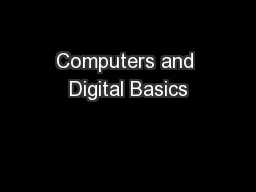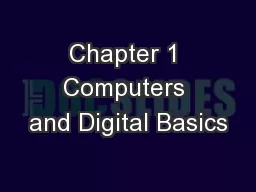PPT-Computers and Work
Author : test | Published Date : 2017-11-06
CS 195 Social Implications of Computers The Vanishing Middle Class Why Tax policy the Reagan revolution Globalization which lowers wages Automation eliminates bluecollar
Presentation Embed Code
Download Presentation
Download Presentation The PPT/PDF document "Computers and Work" is the property of its rightful owner. Permission is granted to download and print the materials on this website for personal, non-commercial use only, and to display it on your personal computer provided you do not modify the materials and that you retain all copyright notices contained in the materials. By downloading content from our website, you accept the terms of this agreement.
Computers and Work: Transcript
Download Rules Of Document
"Computers and Work"The content belongs to its owner. You may download and print it for personal use, without modification, and keep all copyright notices. By downloading, you agree to these terms.
Related Documents














